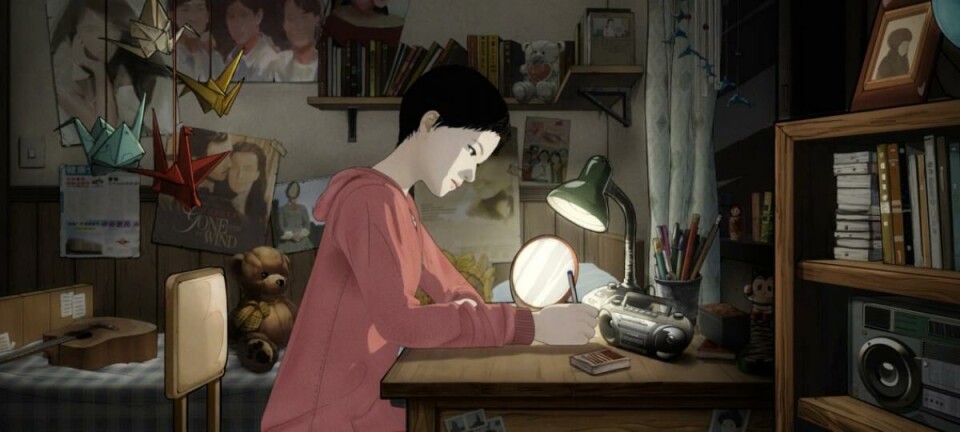article> Arts & Culture
The Surreal and the All-Too-Real: “Up We Soar” review

Yan Ma’s mixed-media documentary about religious persecution in China offers an uplifting perspective on confinement and separation
by Clare Healy
Arts & Culture Editor
The inaugural online edition of Belgium’s Anima Festival serves up a generous, but not overwhelming, helping of exciting animated films from across the globe. Spotlighting an often overlooked medium of filmmaking, the festival’s offerings fittingly include pieces that explore lesser-known topics and lend an ear to otherwise unheard voices. Yan Ma’s documentary Up We Soar is a prime example, as it covers just one of the many underreported and alarmingly recent atrocities carried out under the Chinese Communist Party — the institutionalized persecution of adherents to Falun Gong, a new religious movement drawing from both Buddhist and Taoist traditions.
The film’s subject is Li Fuyao, now living in New York, looking back on her childhood and adolescence in China and the havoc wrought upon her life when the government began rounding up practitioners of her religion in 1999. The arrest of her father, formerly a TV news anchor, was heavily publicized, and its consequences for Fuyao were innumerable — not only had she lost a parent, but now faced ostracisation and humiliation from school mates and neighbors. Fuyao and her mother were then placed under house arrest in the local school, unable to leave a tiny twin bedroom even for groceries and limited to one shower per month. Eventually, Fuyao’s mother was also arrested, and her experience in prison is recounted in harrowing detail by her mother herself.
Switching between live-action interviews and animated recreations of the women’s memories, the film deftly grounds the unbelievable within the familiar. The 2D animation has at times a strangely 3D feel, edging it ever so slightly towards uncanny-valley territory. Thematically, it works: against the backdrop of humdrum family life and teenage growing pains, the narrators recall a handful of cinematic moments from their lives. Fuyao’s mother discusses seeing a fellow practitioner of Fulan Gong captured at a train station, the guard who apprehends her gloating “like he won a lottery”. Knowing the same would soon happen to her, Fuyao’s mother took her last opportunity to denounce the government’s anti-religious policies, throwing papers around the main hall and yelling to the crowds of travelers that they were being fed lies about Fulan Gong (namely that it was adherents to this religion who had self-immolated at Tiananmen Square, a highly-contested claim that the Chinese government still holds to be true).
Up We Soar has real weight for today’s audiences — presenting motifs of confinement and separation, it underscores the family’s philosophical attitude towards their misfortunes. “When winter snow is melted by the sun, does it cry?” The splendid visuals, swelling soundtrack, and ultimately uplifting story give us cause for courage and hope, and with a runtime of just 50 minutes, this documentary certainly doesn’t overstay its welcome. Up We Soar is available to view for €5 via Anima Festival’s website until Sunday, February 22nd.
For more regular content
- Follow us on Facebook: https://www.facebook.com/thevoice.loko
- Check out our Instagram page: https://www.instagram.com/thevoice.kuleuven/
- Listen to our podcasts on: https://www.mixcloud.com/The_Voice_KUL_Student_Radio
For submissions or applications
- Email us at thevoice@loko.be
- Or message us on Facebook





